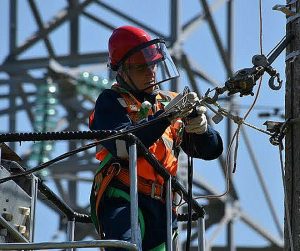Differences Between Occupation And Profession: The terms “occupation” and “profession” are frequently used interchangeably. Although it is perfectly aceptable to use these terms as synonyms, there is a little distinction between occupation and profession. The word “occupation” is neutral and often used. However, a profession is a job that calls either formal education or extensive training.
Recommended: Hardest Universities To Get Into 2023
Profession vs Occupation
A person engages in their occupation as a means of generating revenue. A person can generate money through a business, a job, or an employment, however a profession is an activity that calls for specialized training, command, qualification, and skill. The occupation refers to a person’s work that they typically conduct for pay. A profession is a vocation that calls for a high level of education or abilities.

In contrast to profession, which denotes an academic endeavor, occupation is a neutral, general phrase. A profession requires lengthy training and a certain grasp, but a job only requires a brief introduction. A profession tends to be independent, whereas no one has independent control in an activity; someone else oversees them.
These are occupations with clear restrictions: they often pay little, require a minimum of one person to perform them, and have no social standing. On the other hand, a vocation offers the potential for steady advancement. A professional must have specialised training after completing the requisite academic training. Additional learning and experience are seen favorably. While a professional carries out the majority of the duties associated with his career, a person with an occupation frequently has a supervisor.
Also see: Richest Car Companies In The World 2023
What Exactly Is an Occupation?
A person’s employment in society is their occupation. A job is a specific action that is frequently legal and carried out in exchange for money in order to support oneself. Numerous people hold numerous occupations. A person might start a job by praising an operator, offering to help out, launching a business, or taking up a cause. A job’s duration might be anything from brief to indefinite.

It is the condition of being occupied, seized, or established. It is a task that a person is working on. No one has autonomous power in their employment; someone else is in charge of them. Additionally, since this sort of job does not demand a high level of expertise and experience, anybody may perform evaluations. These are tasks that everyone can complete once since no special training or much practice is required. The salary for these workers is often low to medium in most businesses, and it mostly relies on how much output they can provide.
They are of average social standing and always answer to someone else. Any task that requires a significant amount of time is typically referred to as an occupation using neutral, general language. A broad term, occupation may be used to describe a variety of jobs. On official documents and forms, the term “occupation” is also used to refer to a person’s position. Both substantial and intellectual work make to a profession.
Also see: Best Online Universities in the World
What Exactly is a Profession?
A profession is a line of work built on specialized education and based on providing others with objective, unbiased advice and assistance in exchange for clear-cut payment. Membership in a professional organization and practice certification are implied. The people who pursue a career in providing individualized help are known as professionals, and they are guided by a certain code of conduct established by the relevant organization.

The professional body expands the ethical rules that professionals must abide by in order to maintain consistency in their work. It alludes to intellectual endeavors that entail earning a credential. A professional must undergo extensive training in his specialty, allowing him to amass a wealth of highly specialized information.
Recommended: Best Productivity Apps for iPhone & Android
Differences between an occupation and a profession
1. Advancement: Learning specialized skills and technologies is frequently required for occupational advancement in order to do that employment more effectively. A journalist, for instance, may continue to perform the same job while learning new research, communication, writing, and other skills. This implies that the abilities you acquire enable you to work more productively and efficiently. Instead of switching occupations or getting promoted into a new position, advancement in an occupation can entails getting increases and doing more of the same activities. Because professions are often long-term, advances in your occupation typically occur more quickly.

Learning new skills is frequently a must for professional advancement because you’ll need them for the remainder of your working life. For instance, interpersonal skills may be used in any profession and job you hold, and mastering them enables you to be successful in every capacity you hold.
Promotion to new jobs, rising to the management level within a company, or changing professions are all examples of professional progression. You may develop new abilities and earn more money by doing each of these. Because a profession encompasses your whole professional life, advancement within a profession may take longer than advancement inside an occupation.
Also see: How To Stay Motivated At Work
2. Benefits: You receive different rewards for different occupation and professions. Benefits for an occupation might include insurance policies, training, courses, a wage, and short-term advantages. For instance, a teacher may receive a salary, benefit from health and medical care programs supported by their company, and develop better classroom management skills. Benefits in your profession include long-term advantages that are not immediately available. For instance, if you reach a certain amount of years in a different position, you could progress into a new one.
For instance, a teacher could require five years of service before being promoted to the position of lead teacher. Similar to this, a data analyst would have to fulfill certain criteria before applying for a job. Benefits to professions could also not come from jobs directly. For instance, if you accomplish a specific number of years of employment in your state, your state could provide retirement benefits and a package after you reach a certain age. You can also contribute a certain proportion of your income to a retirement plan that is distinct from the jobs you have.

3. Outlook: Occupational and professional outlooks are distinct. First off, most professionals don’t want to work in their current fields for the rest of their lives. For instance, you may begin in sales, go to management, and finally become the CEO of your own company. All of those roles are occupations, yet they are all a part of your career. Because professions are long-term and occupations are transient, it is crucial to take this into account. This also implies that everyone has a different viewpoint, necessitating various planning strategies for each.
Also see: Advantages And Disadvantages Of Oral Communication
4. Planning: Finally, preparing for an occupation vs a profession differs. You may prepare for income increases within a profession, get ready to pick up new abilities, and create a network of colleagues who share your objectives. You could make plans for your overall professional growth, what you want to do once you quit your job, the jobs you want to have, and other life decisions like having kids, getting married, buying a house, and buying a vehicle.

Recommended: Differences Between Political Party and Pressure Group
Conclusion
The main distinction between a profession and an occupation is that a profession is an activity that one pursues for a substantial amount of time and that offers prospects for advancement. The opposite of an occupation is a person’s primary labor or business, which is usually done in order to support themselves. A person might work in more than one profession throughout their career.
The distinction between a profession and an occupation might be unclear. For instance, although some individuals view specific white collar positions as professionals, others view them as vocations.

Edeh Samuel Chukwuemeka, ACMC, is a lawyer and a certified mediator/conciliator in Nigeria. He is also a developer with knowledge in various programming languages. Samuel is determined to leverage his skills in technology, SEO, and legal practice to revolutionize the legal profession worldwide by creating web and mobile applications that simplify legal research. Sam is also passionate about educating and providing valuable information to people.